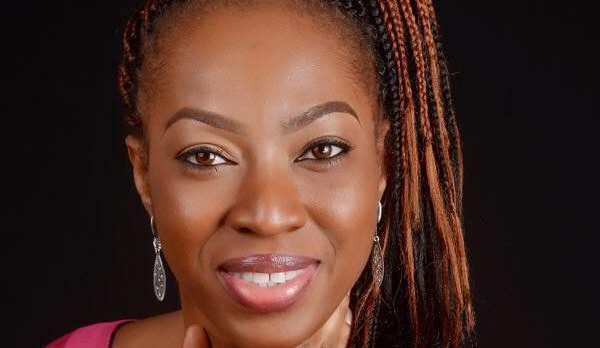Lenten Campaign 2025
This content is free of charge, as are all our articles.
Support us with a donation that is tax-deductible and enable us to continue to reach millions of readers.
Aleteia had the opportunity to interview the tireless pro-life advocate Obianuju Ekeocha (Uju to her friends). Uju is the Foundress and President of Culture of Life Africa, an initiative which reflects the strong pro-life commitments of Christians on that continent.
Culture of Life Africa is “dedicated to the promotion and defense of the African values of the sanctity of life, beauty of marriage, blessings of motherhood and the dignity of family life.” In the face of Western influencers promoting abortion as a means of social and economic mobility, Culture of Life Africa “answers the assaults on these values with African women’s voices.”
Uju is currently working on a documentary that showcases the real damage abortion is bringing to the lives of African women. In telling their stories, and allowing women to express their abhorrence of the practice, Culture of Life Africa intends to demonstrate its resistance to anti-life forces attempting to expand their interests in the continent that has been called the Cradle of Humankind. Donations can be made here.
Aleteia: What led you to consider making this documentary? And why is it important?
Obianuju Ekeocha: For a number of years I have been actively involved in pro-life work in different African countries, particularly working with local pro-life groups, various political leaders and also religious leaders. My focus has been on raising awareness, proposing and, in some cases, helping to organize pro-life conferences and rallies in major African cities.
What I have come to find out in the course of my work is that despite the fact that overwhelming majority of the populations in African countries are pro-life, there is a concerted effort among some western organizations to spread the culture of abortion across Africa. Even though abortion is illegal in almost 80 percent of the African countries, some of the well known abortion organizations in Africa are actually western NGOs funded by (well meaning) Western governments who may not realize how their “development” funds are used in across the continent.
So I traveled to Africa to find out more about this. While I was there, I set out to record some basic interviews, but I met a number of courageous women who wanted to tell their stories about how abortion had devastated them.
I found their stories so disconcerting on many levels because, not only were their abortion experiences nightmarish and their recoveries difficult, but I saw in these cases a clear illustration of how Western-funded “reproductive health” organizations are destroying Africa.
So I felt that there was a strong case to make for a real documentary that might prompt more people to consider our 21st-century case of cultural imperialism that is killing African unborn babies and destroying the lives of African women.
Can you give our readers examples of the moving personal stories you heard from the women you met?
I can’t speak too specifically about these cases because some of them are exposés and may jeopardize the entire project, but I can say that a number of the women are post-abortive, wounded, recovering. There is also another aspect of the documentary that will show the end result of some of the multi-million dollar contraception projects — with poor and rural women suffering the debilitating pains of the side effects (everything from numbness, to headaches, dizziness, sporadic bleeds and loss of libido). And what is the most heartbreaking thing to know is that most of these women were talked into this Western-sponsored contraception and yet when they struggle under the burden of the side effects, they have no money to go to the hospital to get treated or have them removed.
These are some of the world’s unheard voices. My hope is that their voices will finally get heard and that people of good will everywhere would demand for justice for these women and that Western governments would review and change their approach in dealing with Africa.
What is needed to make the documentary? Who are you working with?
We need about $22,000 to get this project completed.
I am working with a very good film maker based in America — LuxLab Production House, who have been very involved in making videos for various Catholic programs. They are very good at what they do but also understand the importance of this project.
A crowdfunding campaign was launched on June 16 and many people have been generous in supporting this campaign. So far we have raised $12,500 which is well over half of it.
In your work, you often talk about how abortion is foreign to the culture, beliefs, and thinking of people in Africa. Tell us more about why the Church in Africa is a source of hope, especially perhaps for the West? What can the West today learn from Africa?
In most parts of Sub-Saharan Africa, the Church is alive and vibrant. Most of our African priests and bishops are clear and unambiguous in explaining the loving (and sometimes difficult) position of the Church on important issues that concern the sanctity and dignity of human life and sexuality.
Not that people don’t stray from the path of the Gospel, but it is rare to find people openly dissenting or opposing the Church in her teaching authority on issues such as abortion, contraception, cohabitation and divorce.
I believe that it is because of this unflinching fidelity to the teachings of Christ that the Catholic Church in Africa has flourished, even in the midst of the most difficult tragedies and the most extreme conditions.
The Church I was raised in caring and consoling. It shapes consciences and offers a moral compass — the unadulterated Gospel of Jesus.
Donations to Culture of Life Africa’s documentary project can be made here.

